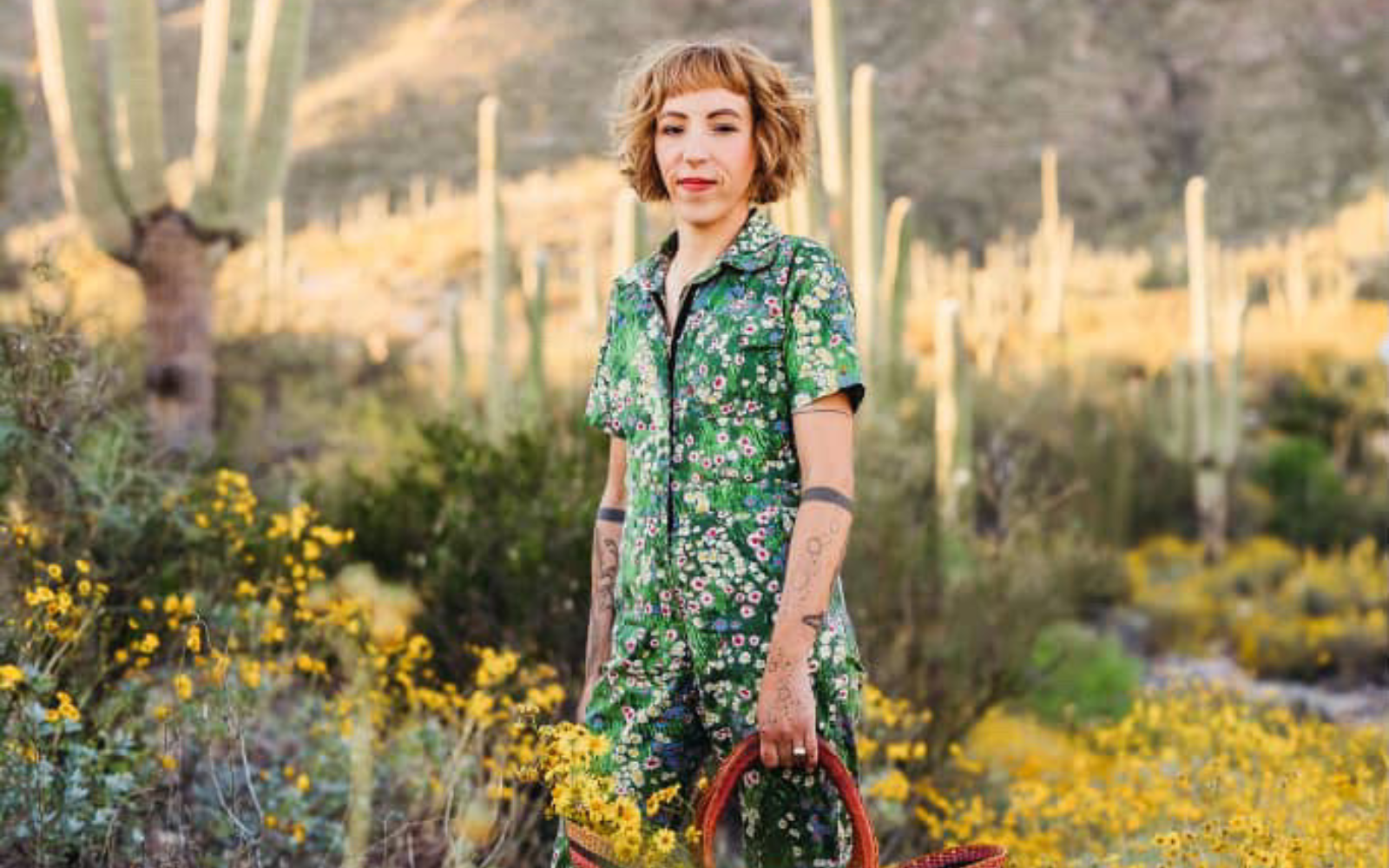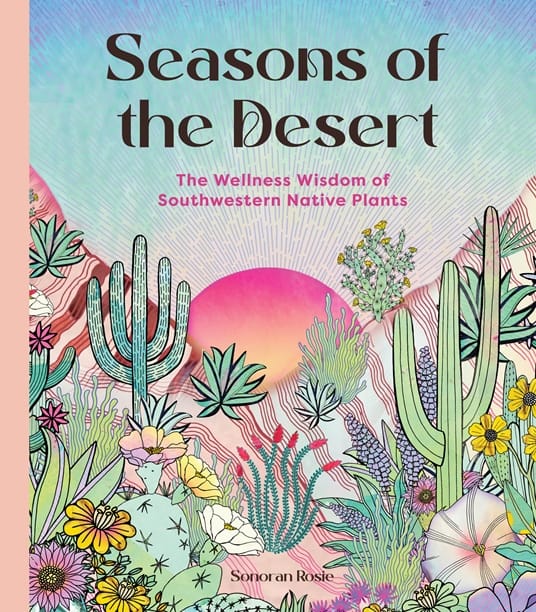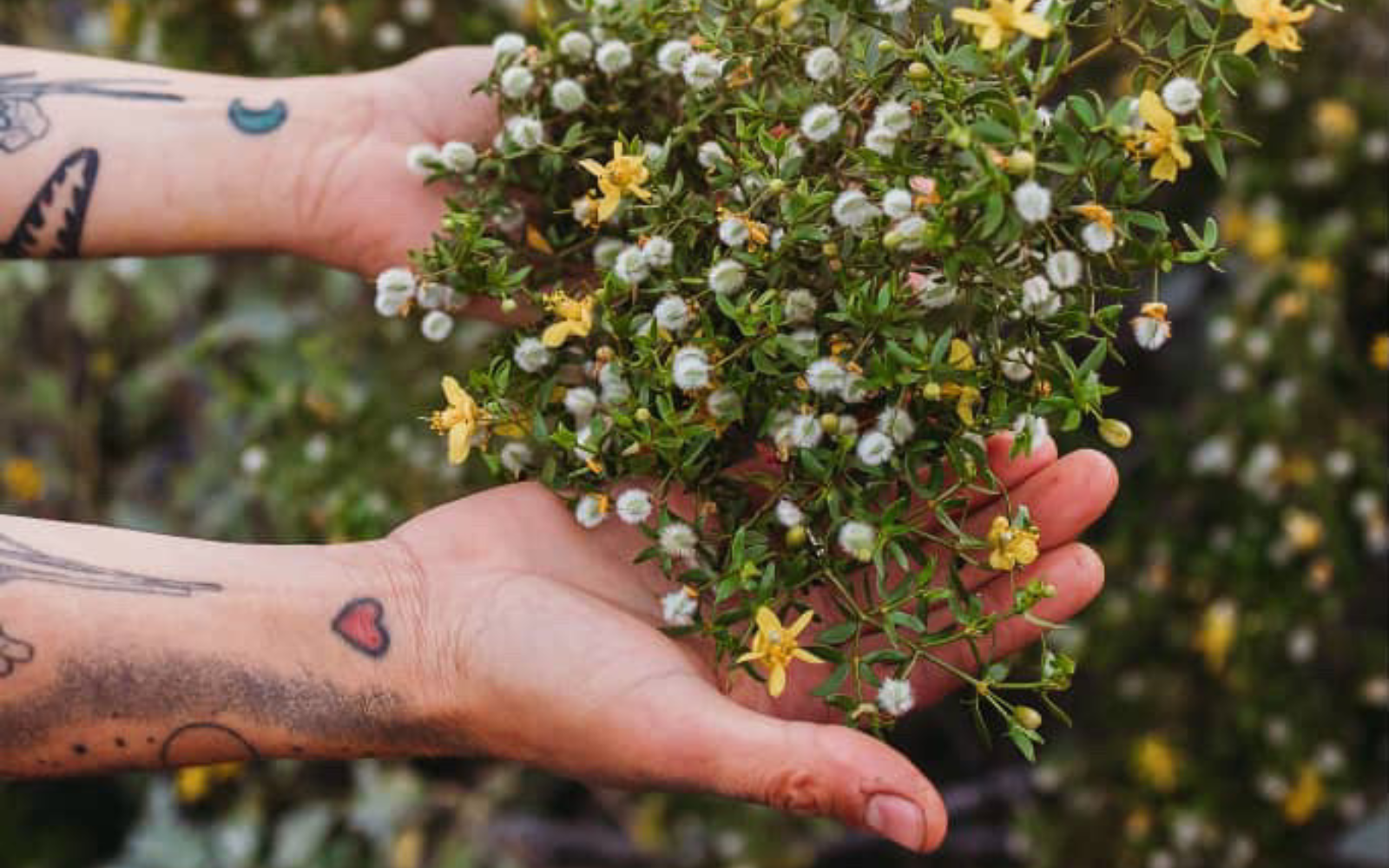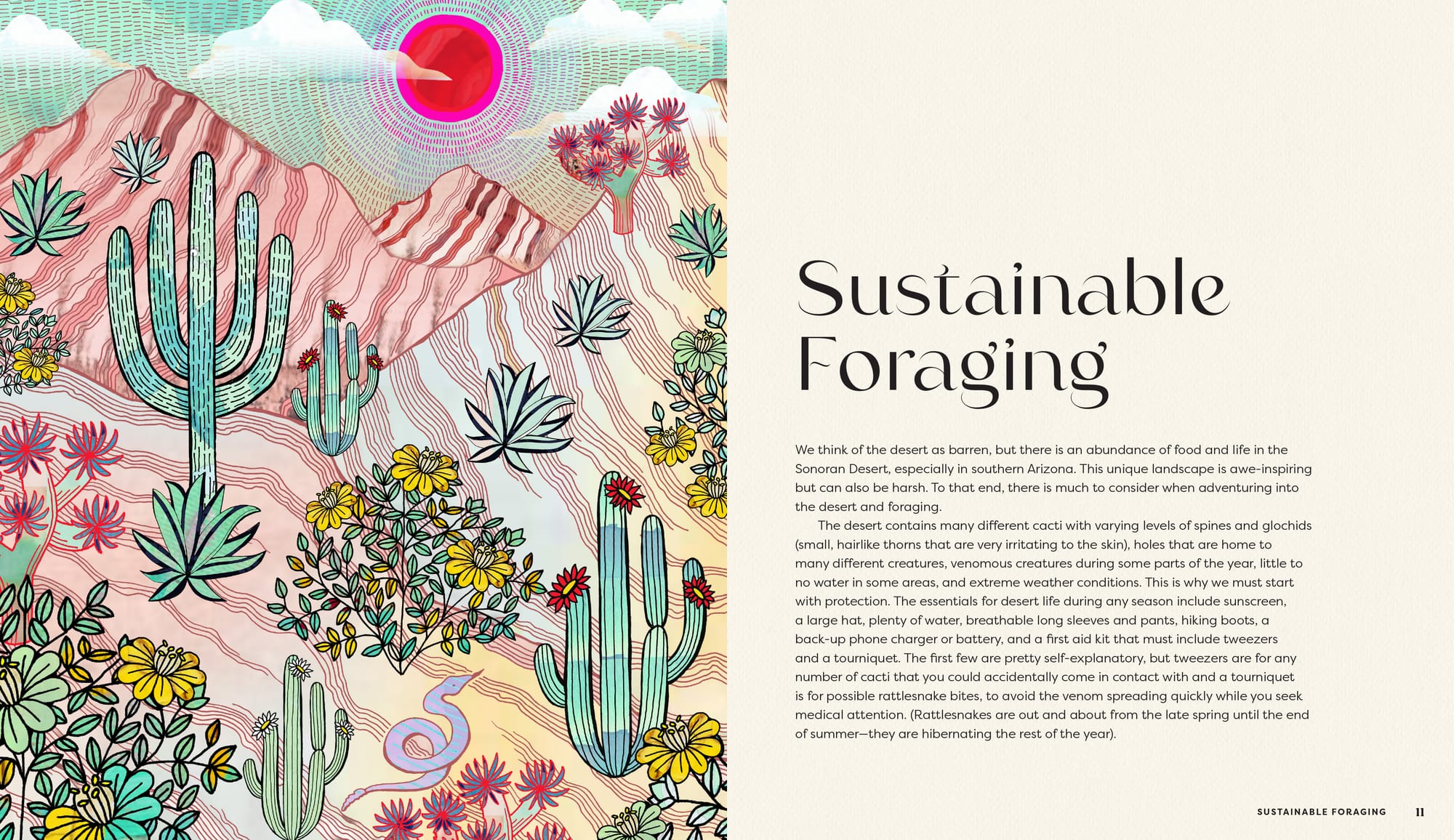Tucson herbalist celebrates Sonoran Desert plants in new book
Rosie Crocker shares how to identify, forage, and use native desert plants in her new book, "Seasons of the Desert."

Rosie Crocker, owner of Arizona Poppy Shop and Sonoran Rosie, has turned her passion for the Sonoran Desert into a thriving business and a new book, “Seasons of the Desert,” which teaches readers how to identify, forage, and sustainably use native desert plants.
When Crocker was an art student, she began exploring her passions, including hiking and gardening, and discovered ways to connect with the desert.
“I would go out into the desert, foraging for desert foods at first, like things I could eat and use right away,” Crocker told Tucson Spotlight.
She also became interested in desert-inspired scents, particularly creosote, and began searching for body sprays and oils that reflected it.
“I really wanted to capture the scent of the desert after it rains,” Crocker said.
After not feeling satisfied with the scents and products she was finding, she decided to take matters into her own hands and begin making skin care products, using her knowldge that products made from native plants are great for the body and skin.
She learned herbalism and began to work out of her house, but she eventually outgrew the space and moved into Arizona Poppy’s current location on South 4th Avenue.

Native plants, including creosote and prickly pear, are cultivated to help people adapt and thrive in the environment of the Sonoran Desert, Crocker said.
Prickly pear juice is rich in vitamins and electrolytes, which help with hydration. And creosote can “heal almost any skincare issue that you can have,” Crocker said.
She says many farmed foods lack the natural nutrients found in native, foraged plants and encourages people to grow these plants in their yards whenever possible.
Beyond their nutritional value, Crocker says native plants play a crucial role in supporting the local ecosystem.
“It keeps the heat down. It makes it so that there are more pollinators, and those are important for our food systems, wildlife in general, and just, biodiversity is like the most important thing,” Crocker said.
Arizona Poppy Shop hosts workshops in which Crocker teaches attendees how to make creosote bundles and about the benefits of the plant, which she said almost always sell out.
She believes people want to learn more about their surroundings and how they can use them.
“People definitely want to find ways to make things themselves and have more of a say and what goes into what they're consuming or putting on their body,” Crocker said. “I think people want a connection to the land, and I think that that is something that we're missing in our society.”

A driving force for Crocker is her passion for her community, which she sees as deeply connected to environmental and civic issues.
“I think people who are into the environment are also into social issues and care about more than just like one thing,” Crocker said.
She puts that belief into action on her personal Instagram page, where she frequently posts about water access, the lack of shade in Tucson and other local environmental concerns. She said she’s frustrated by what she calls inaction by city leaders.
“They always just put Band-Aids on things, and then expect it to go away, and then it just makes the problems even worse,” Crocker said.
She noted that a trash can near Arizona Poppy Shop in downtown Tucson was removed due to vandalism, and another one near the SunTran stop has also been taken away. After having to clean up human feces, her team decided to install their own trash can
She began working with Community Care Tucson shortly after, installing a water station in front of her shop as their first collaboration.
“We've seen so many different types of people … make use of the water station,” Crocker said. “I feel like it's up to the citizens to actually have to do this type of stuff. Not that I mind it so much, because I care about the community, and I want Tucson to be a better place to live, but it's just frustrating.”
She said part of her frustration comes from paying taxes without seeing any real improvement.

When it comes to giving back to the community, Crocker donates to local organizations like Tucson Wildlife and Mission Garden. She also raises awareness through her social media about the desert and its numerous benefits, as well as drawing attention to the city's constant removal of native plants.
“I feel like it creates a stronger connection between the desert and people, so that they have more appreciation for the plant life around them,” Crocker said.
Another important aspect of her work is supporting local artists, hosting the semi-annual Desert Air Market centered around local artists.
“That's part of my goal, is to kind of spread awareness and then also giving back to the local artists community by giving them a space to sell their art and to support local economy so that people can have a creative outlet that can help support their life,” Crocker said.
Her commitment to community and the desert extends beyond events and markets to her latest project, a book that shares her knowledge of native plants.
“Seasons of the Desert” guides readers in identifying native desert plants by season, highlighting the unique rhythms of the Sonoran Desert—including the monsoons—and how to use them sustainably.
It also includes recipes for food, skincare and herbal products.
She celebrated its release with a signing party on Oct. 5 at Arizona Poppy Shop, where the book is available to purchase. It’s also available through major retailers.
Emma LaPointe is a journalism, political science and German Studies major at the University of Arizona and Tucson Spotlight intern. Contact her at emma.m.lapointe@gmail.com.
Tucson Spotlight is a community-based newsroom that provides paid opportunities for students and rising journalists in Southern Arizona. Please consider supporting our work with a tax-deductible donation.




